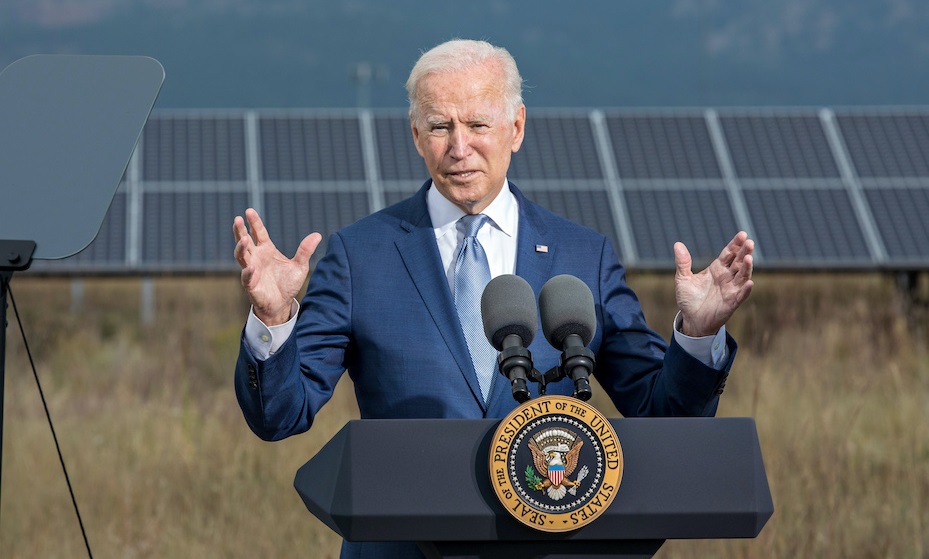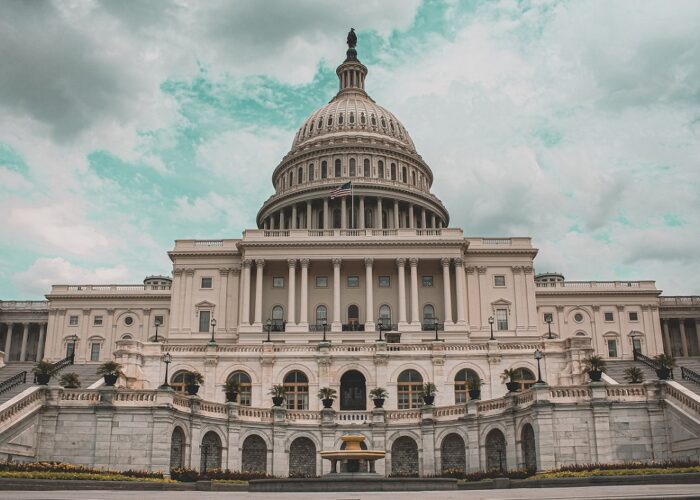
President Joe Biden used his first State of the Union address to emphasise the need for more renewables investment and tax incentives to speed up solar deployment.
Biden promised that measures to combat climate change would cut average US household energy costs by US$500 a year as he continued to push for renewables-supporting policies included in his stalled Build Back Better (BBB) bill.
Unlock unlimited access for 12 whole months of distinctive global analysis
Photovoltaics International is now included.
- Regular insight and analysis of the industry’s biggest developments
- In-depth interviews with the industry’s leading figures
- Unlimited digital access to the PV Tech Power journal catalogue
- Unlimited digital access to the Photovoltaics International journal catalogue
- Access to more than 1,000 technical papers
- Discounts on Solar Media’s portfolio of events, in-person and virtual
“Let’s provide investments and tax credits to weatherise your homes and businesses to be energy efficient and you get a tax credit; double America’s clean energy production in solar, wind and so much more,” Biden said during the speech yesterday.
As US renewable energy trade associations welcomed the comments, there were also fresh calls for policies to bolster domestic PV manufacturing so that the country is less reliant on imports.
“Threats from hostile countries, particularly in light of Russia’s unprovoked invasion of Ukraine, underscore the urgency of our transition to a clean energy economy,” said Abigail Ross Hopper, CEO of the Solar Energy Industries Association.
She said it is critical to invest in US manufacturing supply chains and build demand for clean energy sources such as solar and storage, adding: “With policies that support American clean energy manufacturing and the expansion of solar power and energy storage, we can become less dependent on energy and materials from countries that do not share our values or our interests.”
While BBB contains policy support for US PV manufacturers – as well as expanded solar investment tax credits and a raft of other clean energy provisions – the bill hit a wall late last year as Joe Manchin, a Democrat from West Virginia, said he would not support the legislation.
Although Biden said in January that he believed he could win support for the energy and environmental initiatives included in BBB, Democrats still need to secure the backing of Manchin, who sat on Republicans’ side of the House chamber during the president’s address.
“They just can’t help themselves,” Manchin said when he was asked after Biden’s speech whether he was surprised by the president’s effort to try and revive the legislation, according to The Hill.
More than 260 companies in the US clean energy sector wrote to congressional leadership in January, warning that US$2 billion is being lost in economic activity every month the bill is delayed. Citing analysis by trade body American Clean Power (ACP), the letter said the legislation would help the US reach 750GW of solar, wind and battery storage by 2030.
Responding to Biden’s address, ACP CEO Heather Zichal called for renewables deployment to be accelerated and urged Congress to take action on investments and tax credits for the clean energy industry.
Zichal said: “The invasion of Ukraine reminded us that bullies like Vladimir Putin can play games with energy to hold countries hostage. This week we also heard the world’s leading climate scientists tell us that our planet is warming at an alarming rate. The way out of both of these crises is to rapidly scale affordable, reliable clean energy everywhere.”







